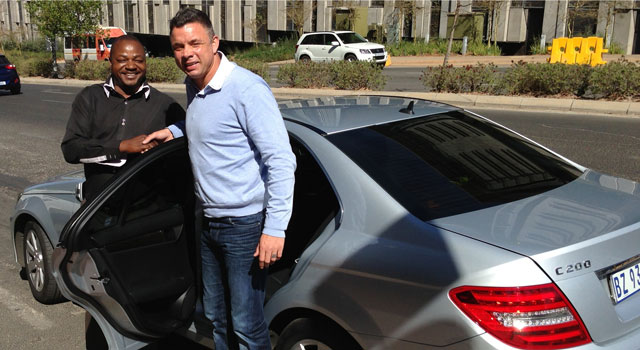 When Roy Amara was president of The Institute for the Future, he famously remarked: “We tend to overestimate the effect of a technology in the short run and underestimate the effect in the long run.” Looking at the current crop of start-ups now hitting their stride, it’s safe to say online services have officially entered said long term.
When Roy Amara was president of The Institute for the Future, he famously remarked: “We tend to overestimate the effect of a technology in the short run and underestimate the effect in the long run.” Looking at the current crop of start-ups now hitting their stride, it’s safe to say online services have officially entered said long term.
Uber is a case in point. The promise of the service is simple: to make taking a taxi a quicker, more reliable and enjoyable experience. Have you ever called a taxi company and waited three times as long as they promised? Or had to call them again only to find the driver went to the wrong address? Uber makes aims to make those scenarios impossible.
The solution is as elegant as it is simple: you have a smartphone, and so do most taxi drivers. All decent smartphones have built-in GPS chips. So, why not share your location with each other when you request a pickup? Then you’ll know exactly how far away the taxi is, and the driver will know exactly where to pick you up.
While we’re at it, why not give every driver a profile on the system, with their picture, their number plate and the kind of car they’re driving? That way you won’t mistakenly jump into some unsuspecting commuter’s car. How about a rating system, so you can choose not to ride with a driver with a low rating?
And why bother with cash? You can just add your credit card to the app once and then pay all your fares securely with the touch of a finger. And so, with some clever ideas and some excellent software, Uber has changed the taxi industry at a stroke. In less than four years, the service has spread around the world — including to South Africa — and is currently valued at more than US$3bn.
What makes a service such as Uber different from more obvious online services such as Facebook or Twitter or e-commerce services like Amazon is that it reaches deep into the real world — facilitating transactions that once seemed immune to the influence of technology. When Marc Andreessen, a venture capitalist, wrote in 2011 that “software is eating the world” this is what he meant.
And Uber is only one of many companies radically overhauling the status quo. When my wife and I spent three months travelling through the US in 2012, we made heavy use of Flipkey. This wonderful service connects people with periodically empty apartments to people who would like to rent apartments for short holiday stays (typically a week or two).
Both the lessor and the lessee have an opportunity to vet each other through the service before booking the stay, and to rate each other once the lease is over. Flipkey also securely facilitates the payment and takes a small cut for its trouble. And so, at a stroke, Flipkey increases the efficiency of accommodation in overcrowded cities, gives travellers a cheaper and often nicer alternative to chain hotels, and earns some extra money for property owners.
This new market, which Flipkey helped create, is so large that other entrants are enjoying equally profound successes with only minor variations on the theme. AirBnB allows people to rent out spare rooms in their homes without having to be away at the time. Couchsurfing.com does the same, but with a focus on extremely cheap accommodation for backpackers (literally sleeping on people’s couches).

And where entrepreneurs aren’t creating new markets, they’re making existing ones better. Just look at TallOrder, a South African start-up by serial entrepreneurs Dana Buys and Ferdi Ladeira. Why do you need to wait for a waiter to come round to your table and laboriously record your order? Using a tablet or smartphone, you can use TallOrder to order exactly what you like and have the waiter simply deliver it to your table when its ready. No more mistakes or forgotten items, and no more getting served seventeenth even though you ordered first.
What’s clear from all these businesses is that there are still enormous untapped opportunities for software to completely revolutionise virtually every industry on the planet. A dry cleaning app or online pet grooming service might sound idiotic — but someone is probably working on both of those ideas as I write this. The key is to find a problem that no one else even recognises yet — such as the way taxis work — and solve it.
The idea of software eating the world might sound a bit scary to some people, but the only people who should be afraid are the heads of large established companies. Ordinary consumers are about to enjoy several decades of better services at lower prices, and entrepreneurs have never had more power to change the world. — (c) 2013 Mail & Guardian
- Alistair Fairweather is chief technology officer at the Mail & Guardian
- Visit the Mail & Guardian Online, the smart news source

